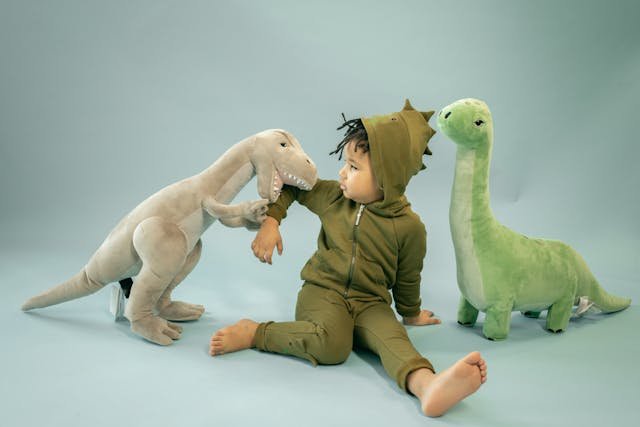One of the most important ways to appreciate and celebrate diversity in a society where it is more acknowledged is via the naming of our children. Multicultural baby names are becoming more and more popular, signifying not only the merging of cultures in contemporary countries but also the appreciation of the depth and beauty inherent in many cultures throughout the globe. This article will discuss the value of multicultural names, the relevance of accepting variety in baby names, and how these factors support the development of a more accepting and internationally conscious society.

The Importance of Baby Names from Different Cultures
For parents, naming their infant is a very personal and significant choice. It not only molds the child’s identity but also conveys the family’s values, worldview, and cultural background. A special chance to recognize one’s own ethnic heritage while celebrating diversity is presented by multicultural baby names.
Families in today’s multicultural society often come from a variety of linguistic, religious, and ethnic origins. By acting as a link between these disparate identities, multicultural baby names foster inclusion and harmony within the family. They also act as a reminder of how intertwined civilizations are and the beauty that results from their fusion.
Welcoming Variations in Naming
Parents who pick a multicultural baby name are making a deliberate effort to support inclusion and celebrate diversity from the start of their child’s life. Parents show respect for various cultures in addition to celebrating their own ancestry by naming their child after a combination of numerous cultural influences.
Multicultural baby names are often used to memorialize a treasured family member or to pay tribute to a particular ethnic custom. Regardless of their cultural heritage, they might also be chosen just because the parents find them appealing. This readiness to see beyond one’s own cultural borders is a potent representation of acceptance and openness.
The Allure of International Baby Names
The wide range of alternatives accessible from many cultures throughout the globe is one of the most enticing characteristics of multicultural baby names. The options are unlimited, ranging from customary names derived from historical civilizations to contemporary names influenced by popular culture.
International baby names provide an insight into the diverse fabric of human history and geography. They may be taken from a wide range of sources, including mythology, literature, the natural world, and religion, and they represent the many factors that have shaped human civilization. The importance and depth of a child’s identity are enhanced by the distinct meanings and stories associated with each name.
Additionally, global baby names provide parents a chance to teach their kids about other customs and civilizations. Children may get a deeper understanding of the variety and interconnection of the globe by investigating the meanings and origins of their names.
Keeping Cultural Sensitivity in Check
Although it is certainly enticing to choose a multicultural baby name, parents must approach this choice with respect and understanding. The issue of cultural appropriation is serious, and it’s important to refrain from taking names or other cultural symbols that are precious to certain populations.
Parents should be aware of the possible ramifications and take the time to investigate the cultural background of the names they are contemplating. Make sure the name is acceptable and courteous by conferring with members of the relevant cultural community or getting advice from cultural specialists.
The practical effects of a multicultural baby name, like as spelling and pronunciation, must also be taken into account. Although having a unique name might give a kid a sense of pride and uniqueness, it can also cause problems for others when it comes to spelling and pronunciation. It’s important to strike a balance between pragmatism and cultural authenticity.
The Identity Effect of Multicultural Baby Names
Choosing a multicultural baby name is more than just a label; it’s an important part of forming a child’s identity. In a world gone global, where people often find themselves straddling many cultures, having a name that honors this variety may be a source of pride and power. Instead of being placed in a single cultural box, the kid accepts a diverse range of influences, which helps them develop a more complex and integrated sense of who they are.

As they become older, kids with ethnic names often develop a curiosity in the meanings and origins of their names. This inquisitiveness may serve as a spur for a more thorough investigation of their family’s cultural origins, developing a bond with their history that goes beyond appearances. The grasp of cultural traditions, languages, and rituals that come with having multicultural names fosters a feeling of cultural pride that becomes an essential component of their identity.
Challenging Bias and Shattering Stereotypes
Selecting baby names from a multicultural background may also help dispel prejudice and preconceptions. Since names can hold underlying cultural or ethnic connotations, choose a name that goes against these expectations may make a strong statement. It dispels myths and encourages a broader, more inclusive definition of identity.
A kid whose name is customarily connected to a particular cultural or ethnic group, for example, can reject stereotypes and promote an atmosphere in which people are valued for their individuality rather than fitting in with society’s expectations based only on their names. Multicultural names help to dismantle boundaries and promote a more accepting and tolerant society in this manner.
Cultural Exchange and Global Citizenship
Raising global citizens—people who are unconstrained by limited cultural viewpoints but instead receptive to the richness and variety of the world—is facilitated by the use of multicultural baby names. These kids’ names become a representation of their ability to overcome cultural barriers and have meaningful cross-cultural conversations as they grow up in an increasingly linked world.
Multicultural names may also promote mutual understanding and cultural interchange. A varied range of names may start discussions about ancestry, customs, and experiences in the classroom or at work. In the end, this interchange helps to create a more peaceful and understanding global society by fostering curiosity and appreciation for the distinctions that make each individual unique.
Difficulties and Joys of Multicultural Naming
Multicultural baby names have many advantages, but it’s important to be aware of the potential drawbacks as well. As was previously noted, cultural awareness is crucial, and parents must walk a tightrope between acknowledgment and appropriation. Parents should be aware of the possible effects on the associated cultural groups and choose names with true respect and understanding in mind.
Furthermore, children may get frustrated when they encounter misspellings and mispronunciations of ethnic names. When choosing a name for their kid, parents should think about the practical features of it, making sure that it is both significant and easy to use in the child’s everyday life.
The joys associated with multicultural baby names far surpass the problems, nevertheless these obstacles. Every name becomes a distinct narrative, a link to history, and a ray of hope for a day when variety is not just accepted but embraced.
Multicultural Naming Trends in the Future
Naming patterns change in tandem with the world’s ongoing evolution. Multicultural baby names are expected to become more common as a result of a worldwide culture that embraces inclusion and variety. We could see a stunning mash-up of names in the future that are inspired by other civilizations, resulting in a mosaic of identities that resist easy classification.
Furthermore, parents may become more careful in their naming practices as awareness of cultural appropriation increases, aiming to respect and appreciate without appropriating. This change in name conventions will support a celebration of diversity that is more courteous and sensitive to cultural differences.

Results
In conclusion, an increasing understanding of the value of inclusion and cultural acceptance in contemporary society is reflected in the trend of accepting variety in baby name selections. Parents may embrace the diversity of different cultures while also celebrating their own background by giving their children multicultural baby names.
Embracing Diversity in Naming: Frequently Asked Questions (FAQ) on Multicultural Baby Names
1. What are baby names with multicultural origins?
Baby names that are inspired by several nations, races, and traditions are known as multicultural baby names. These names often include components from all around the globe, reflecting the child’s family’s broad histories and ancestry.
2. Why settle on an ethnic baby name?
Selecting a multicultural baby name enables parents to embrace global variety while celebrating their own cultural heritage. It encourages inclusion, introduces the kid to a variety of cultural influences, and advances an international viewpoint.
3. What effects do ethnic baby names have on a child’s identity?
A child’s sense of identity is shaped by their multicultural baby names, which represent a wide range of influences. By encouraging a link to ancestry that extends beyond a certain cultural identity, these names often inspire youngsters to investigate their family’s cultural origins.
4. What does the meaning of international baby names mean?
Worldwide baby names include names from many different civilizations. They give a unique chance to investigate the customs and meanings attached to names, giving insight into the wide range of factors that impact human culture.
5. How can ethnic baby names combat prejudice and stereotypes?
Multicultural baby names subvert assumptions connected with certain names, so challenging prejudice and stereotypes. They promote a broader definition of identity and an atmosphere in which people are valued for their individuality rather than for fitting into stereotypes associated with their names.
6. What factors should parents take into account when selecting names for their multicultural children?
Parents need to be aware of cultural sensitivity, refrain from appropriating, and honor the holy meanings associated with certain names or symbols. To make a name meaningful and easy to use in everyday life, one should also take into mind pragmatic factors like pronunciation and spelling.
7. How can baby names from different cultures promote global citizenship?
Culturally diverse baby names help create a more accepting and diverse society by encouraging an awareness of difference. These names represent people’s capacity to communicate across cultural divides, participate in cross-cultural conversation, and support a more peaceful and understanding international society.
8. What potential problems may multicultural baby names cause?
Potential mispronunciations or misspellings, as well as the necessity for parents to strike a balance between respect and appropriation, may be issues with multicultural baby names. In order to make sure the selected name honors the customs and meanings attached to it, cultural awareness is essential.
9. Is the use of ethnic baby names becoming more common?
Yes, a wider cultural trend toward appreciating diversity and inclusion is reflected in the rising popularity of multicultural baby names. Parents are more inclined to choose names that honor the diversity of their world background as knowledge of cultural appreciation rises.
10. How could multicultural naming patterns change in the future?
Multicultural name trends may continue to emphasize cultural awareness while celebrating a variety of influences. It’s possible that parents will become more thoughtful in their naming practices, which will help create a more inclusive and respectful name space that reflects the interconnection of our global society.



